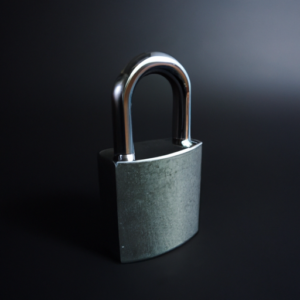Hey there, let’s talk about NAS!
So, you probably already know that NAS stands for Network Attached Storage. It’s a type of device that allows you to store and share data across a network. It’s super convenient and can be used for personal or business purposes. But, what you might not have considered is the importance of security when using NAS.
I mean, think about it. You’re storing sensitive data on a device that’s connected to a network. There’s a potential for that data to be accessed by unauthorized individuals or even hackers. That’s why it’s crucial to consider security when using NAS.
Securing Your NAS: The Key Considerations
When it comes to Network Attached Storage (NAS), it’s crucial to consider security measures to protect your digital assets. Here are some of the key security considerations:
Access Control: Who Has Access?
You’ll need to control who has access to your data. While you may want to share data with others, you’ll also want to ensure that your data is secure. Be sure to set up different levels of access, according to how sensitive the data is.
Authentication: Who’s Using Your NAS?
It’s important to authenticate who is accessing your NAS to ensure that you have a record of who is using your data. By requiring users to log in with separate credentials, you can create an audit trail and ensure that only authorized users have access.

Encryption is a critical security measure that you can use to protect sensitive data stored on your NAS. With encryption, your data is securely stored so that only authorized users can view it. It offers a layer of protection that ensures your data is safe even in the case of a data breach.
By implementing these security measures, you can ensure that your NAS is a safe and secure place to store your data. You’ll gain the peace of mind that comes with knowing that your information is protected from prying eyes, and ensure that your sensitive data is kept confidential.
Why It’s Crucial to Implement a Security Plan for Your NAS
As someone who has experienced data loss due to lack of security measures in the past, I cannot stress enough the importance of having a solid security plan in place for Network Attached Storage (NAS).
There are a number of benefits you can reap by taking security into consideration when using NAS. First and foremost, you’ll be protecting your data from malicious actors who may try to access and compromise your files. By implementing proper access control procedures such as user accounts with varying levels of permissions, you’ll be able to restrict certain users’ or groups’ access to your files.
A good authentication system is also crucial to ensuring the security of your NAS. Establishing strong passwords or passphrases, and requiring them to be changed regularly, can go a long way in keeping your data secure. If you want to take it a step further, implementing two-factor authentication can provide an extra layer of security, ensuring that only authorized users are able to access your files.
Encryption is another important aspect of securing your data. By encrypting your files before they are even transferred to the NAS device, you can help ensure that any data breaches or hacking attempts are rendered useless, as the hackers will not be able to read that data without the encryption key. It’s also important to ensure that your NAS device itself is encrypted, so that if it is physically stolen, your data cannot be accessed by whoever stole it.
Implementing a comprehensive security plan for your NAS also helps your business stay compliant with various data protection regulations, such as HIPAA, GDPR, and CCPA. Compliance with these regulations is important both from a legal standpoint and for building trust with customers.
Ultimately, taking security into consideration when using NAS can save you a lot of trouble and headache in the long run. Putting in the effort to implement proper access controls, authentication measures, and encryption will help keep your sensitive data safe and secure, and provide peace of mind knowing your business is in compliance with relevant regulations.
Conclusion: The Bottom Line on NAS Security
Well, folks, that brings us to the end of our discussion on NAS security. To sum up, it’s crucial to consider security when using NAS because it stores important data that could be stolen or compromised. There are three main aspects of security to consider when using NAS: access control, authentication, and encryption. Access control ensures that only authorized users can access the NAS. Authentication verifies the identity of users, while encryption protects data by scrambling it so it can’t be read by unauthorized persons.By implementing a security plan for NAS, you can benefit in many ways. First and foremost, you’ll improve data protection, ensuring your information stays safe from unauthorized access. Additionally, implementing security measures can help you stay compliant with regulations and security best practices.Ultimately, it’s up to you to decide which security measures are right for your NAS system. But remember: the benefits of implementing a security plan for NAS are numerous, and outweigh any inconvenience or expense. So don’t leave your data unprotected – take the necessary steps to secure your NAS today!